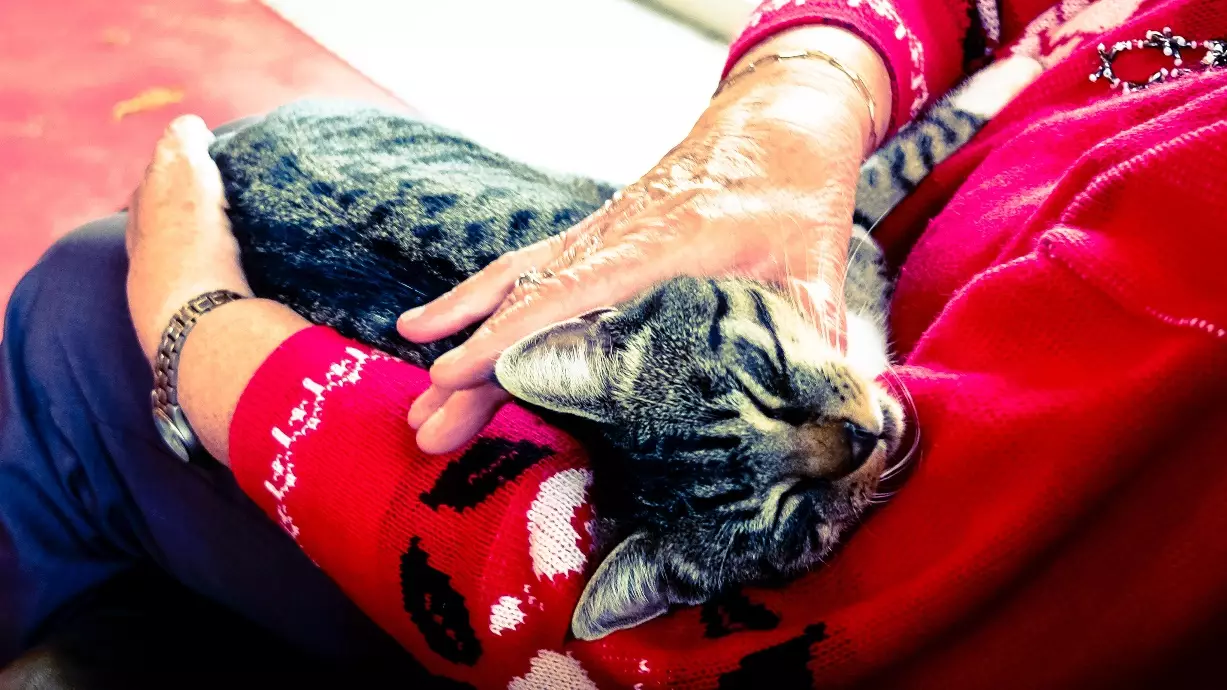The bond between humans and animals has been celebrated throughout history, yet it is only in recent decades that researchers have turned a focus on understanding its profound implications for health and well-being. More specifically, companion animals, particularly cats, are increasingly recognized as pivotal in combating feelings of loneliness and social isolation, especially among older adults. Organizations like the Society for Companion Animal Studies (SCAS) have provided valuable insights into how these connections can significantly impact mental health, leading to an enhanced quality of life for pet owners. The allure of cats as companions is not merely anecdotal; a substantial body of research validates the perceptions of millions of individuals who report benefits to their psychological well-being, bolstered by surveys from the United States indicating an impressive 87% of pet owners affirming the positive mental health impacts of living with animals.
Loneliness and isolation represent formidable challenges, especially among older adults who often experience significant life transitions that can exacerbate these feelings. The consequences of loneliness are stark, featuring a myriad of physical health risks that may aggravate pre-existing health conditions, ultimately contributing to an overall decline in quality of life. However, the therapeutic potential of pets, particularly cats, is becoming recognized as a counterpoint to these vexing realities. With the popularity of feline companions soaring globally, the opportunity to enhance social connections through pet ownership is more attainable than ever.
Recent studies suggest that older adults who have long-term relationships with cats not only benefit socially but may also enjoy cognitive and physical health improvements as they age. This indicates a strong correlation between the act of caring for a cat and enhanced well-being. As social networks traditionally wane over time, the companionship that cats provide fills a crucial void, making them ideal partners for older adults looking to mitigate loneliness.
Amid these findings, an encouraging new approach has emerged: fostering cats instead of outright ownership. A feasibility study conducted by esteemed researchers from the University of Georgia and Brenau University explored whether fostering a shelter cat could benefit older adults living alone. The research specifically targeted this demographic, which may be hesitant to commit to a long-term pet due to concerns over the cat’s lifespan extending beyond their own. The study, published in the Journals of Gerontology, Series B, sought to analyze the implications of fostering cats on older adults’ feelings of loneliness and overall well-being.
Participants were carefully selected and provided with necessary supplies, veterinary care, and regular check-ins to ensure both their health and that of the felines they fostered. Surveys assessing health and well-being were conducted before and at various intervals after the fostering experience began, specifically at one, four, and twelve months.
The results were telling. After just four months of engagement with their foster cats, participants reported significantly diminished feelings of loneliness. The data adjusted for physical health indicated a measurable improvement in mental health, offering compelling evidence to support the assertion that fostering has substantial emotional benefits. Almost universally, 95.7% of the older adults chose to adopt their foster cats after the study concluded, illustrating not just a temporary solution to loneliness but a long-term commitment to companionship and care that thrives beyond the scope of the research.
Dr. Don Scott, a key investigator on the project, emphasizes the urgent need for innovative strategies to combat the adverse effects of loneliness in older adults. The study’s findings highlight how fostering cats could provide a tangible pathway to improved quality of life, advocating for approaches that dismantle barriers to pet ownership by offering support like veterinary care and pet supplies.
As communities grapple with the increasing prevalence of loneliness and social detachment among older populations, fostering programs for shelter cats present a unique intervention. They not only promote the well-being of individuals but also enhance the chances for shelter animals to find loving homes. The potential benefits extend beyond individual participants; fostering can foster stronger community bonds, as older adults share their experiences and find support within their networks.
Fostering cats emerges as a promising avenue to alleviate loneliness while nurturing the invaluable human-animal bond. This relationship has shown profound potential to help older adults lead healthier, happier lives while simultaneously advocating for the welfare of shelter animals. By dismantling barriers that hinder pet ownership and emphasizing the health benefits of companionship, society can take meaningful steps to combat isolation and ensure that seniors feel valued and connected. Through fostering, both humans and animals can thrive together.


Leave a Reply